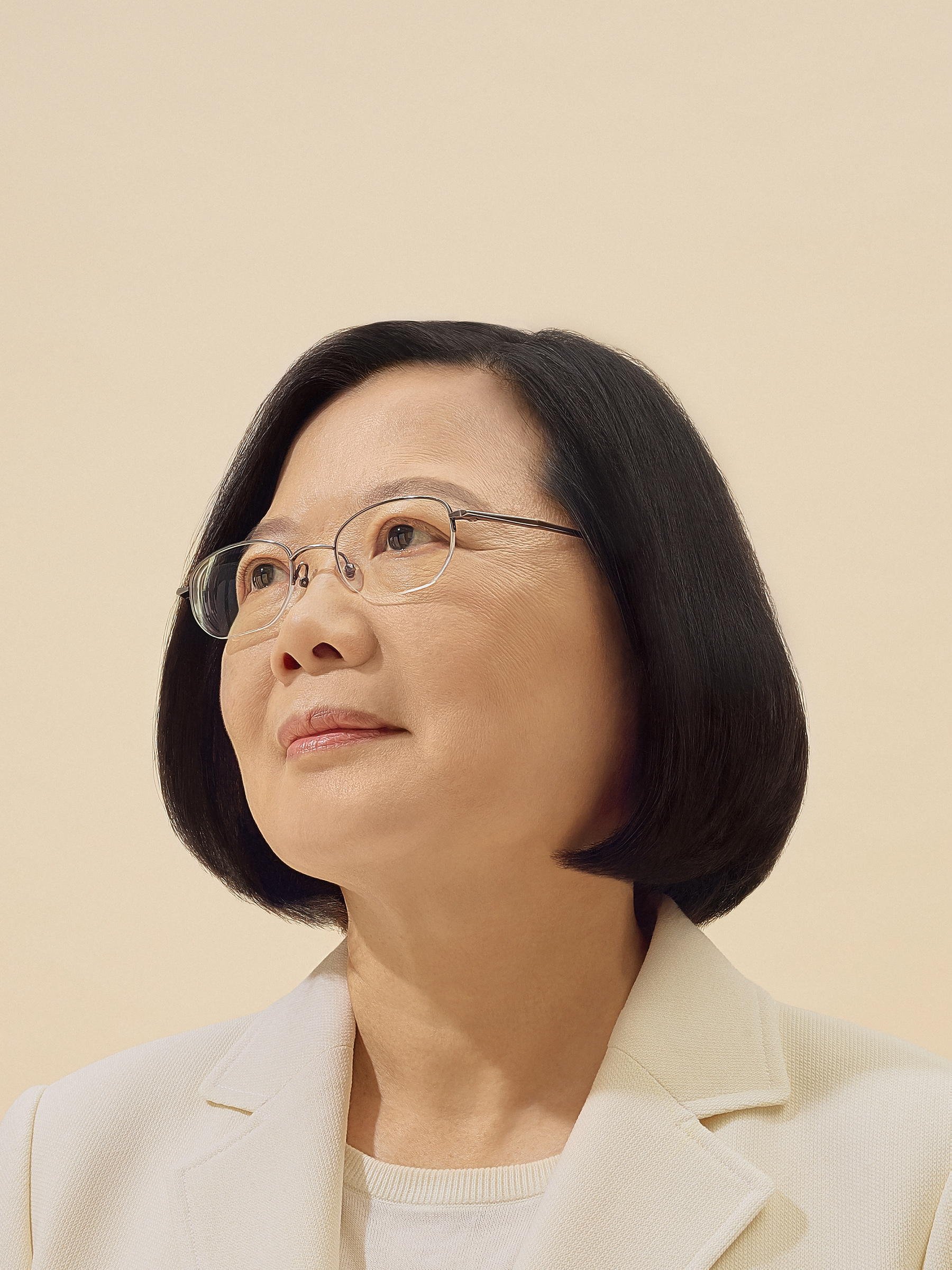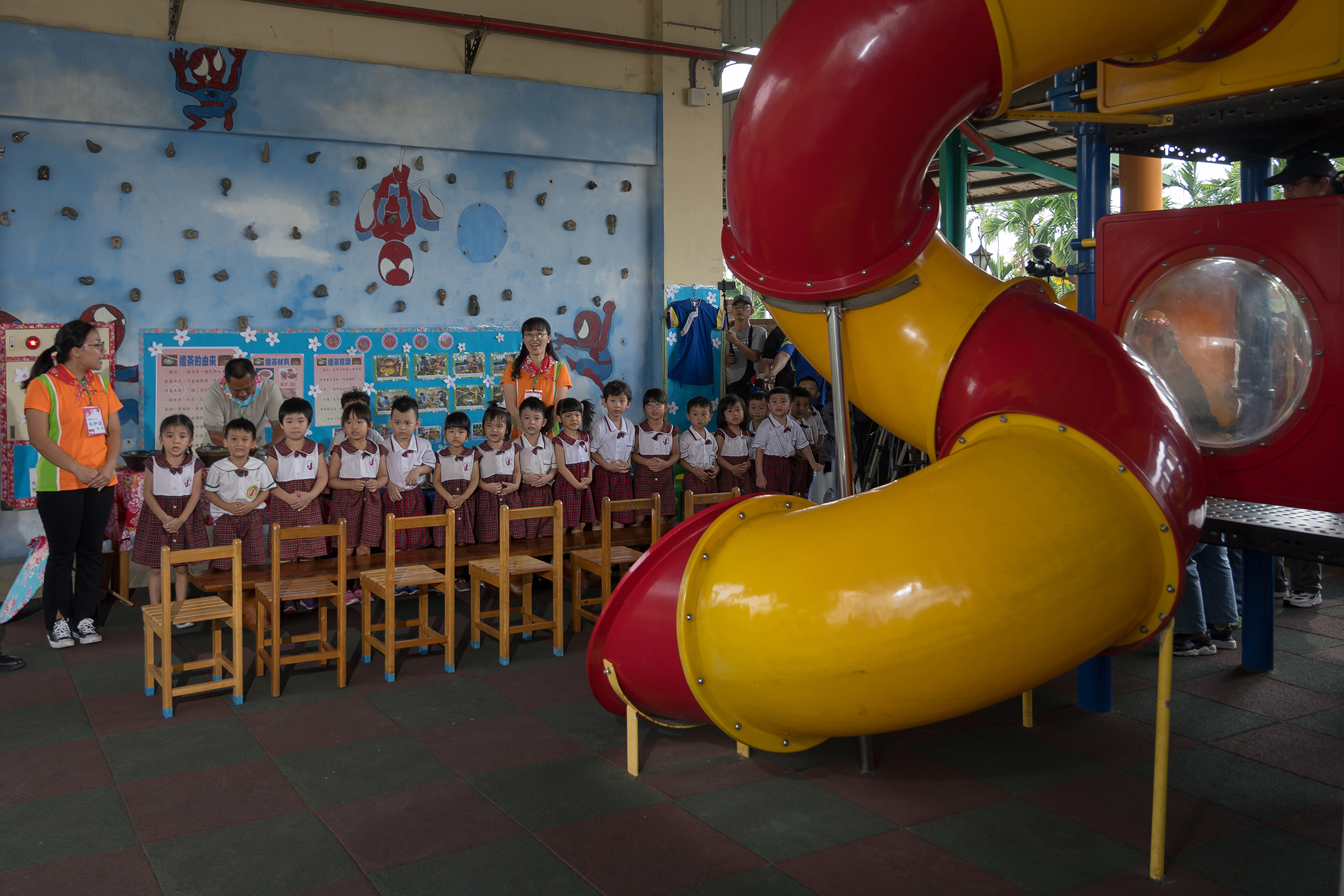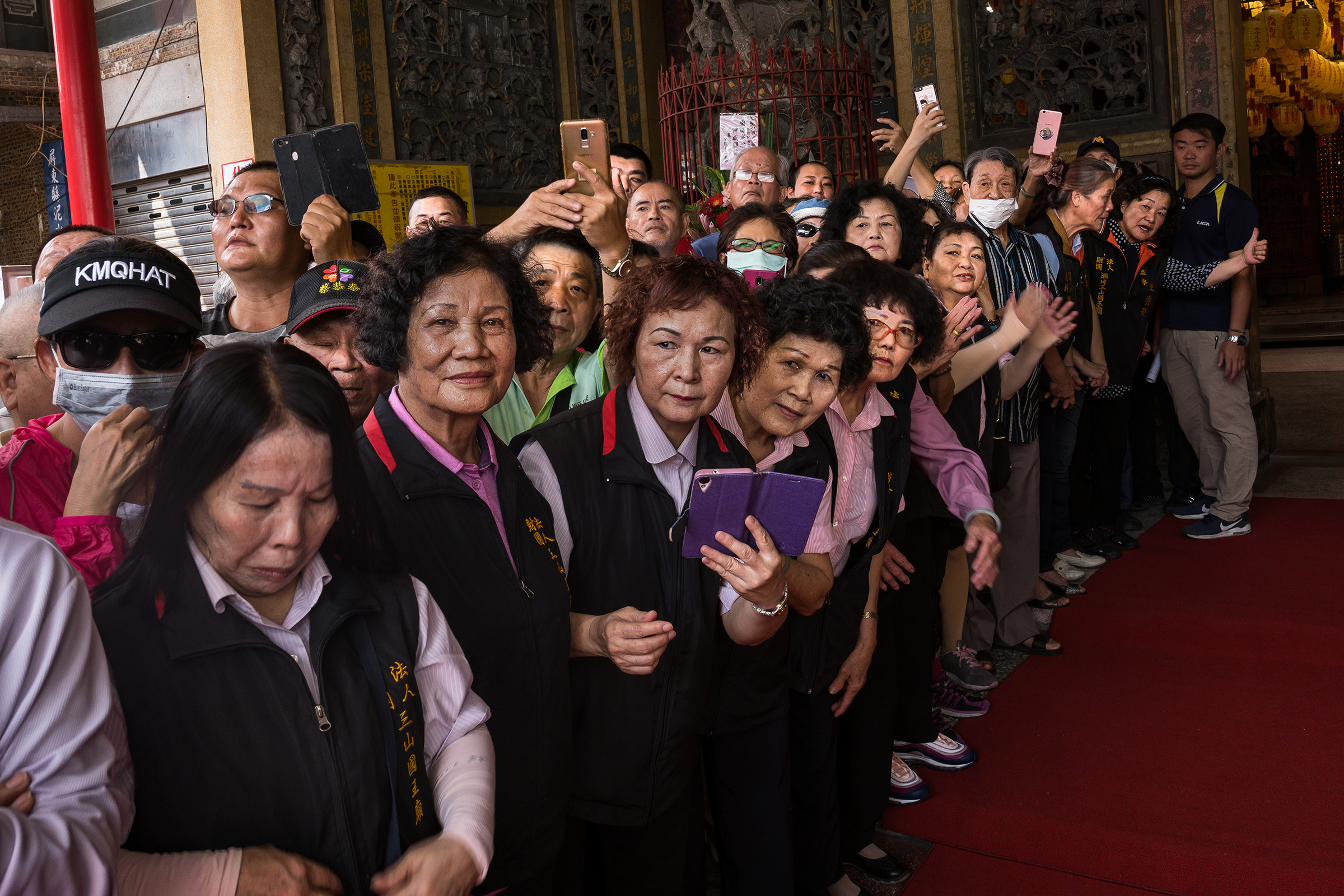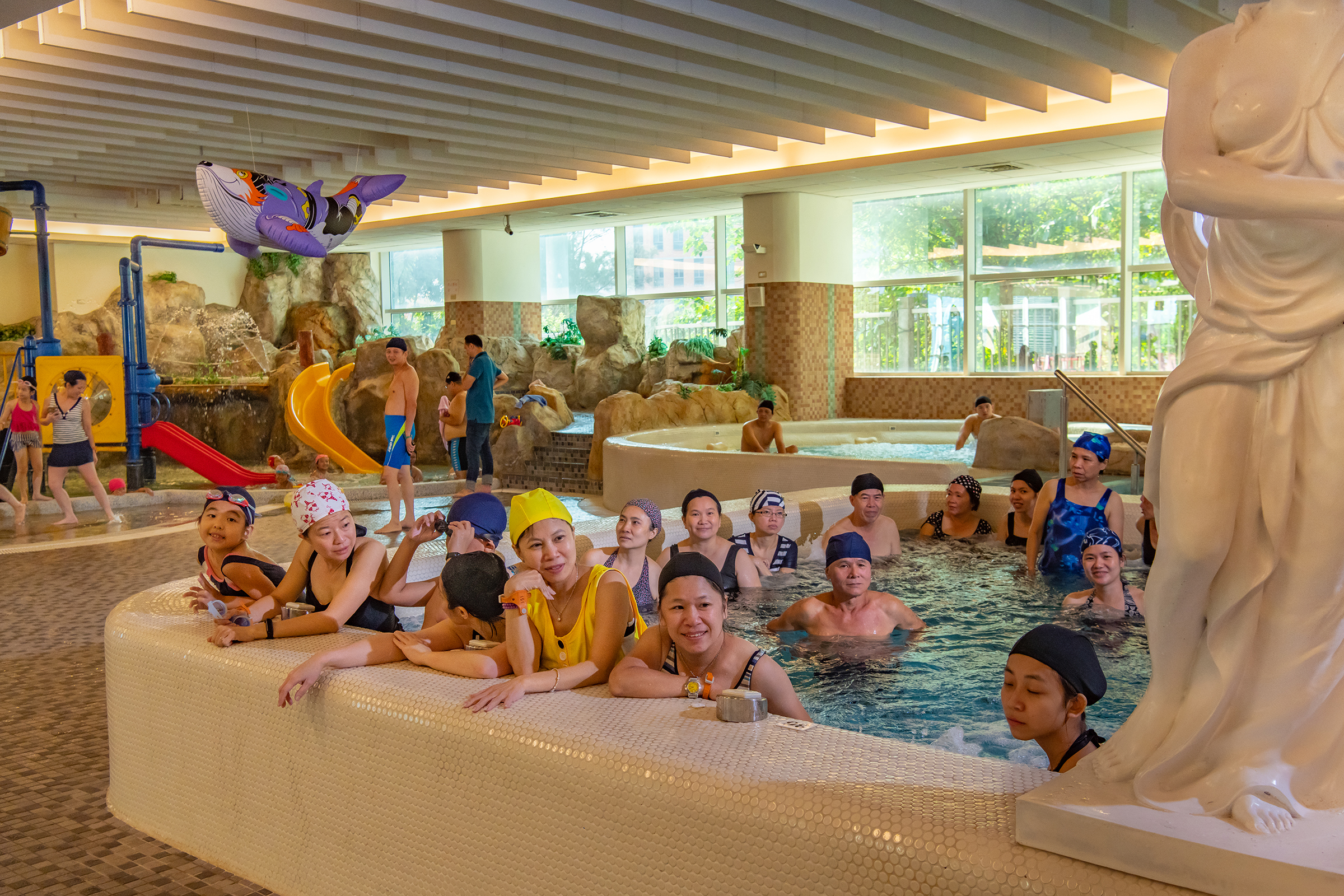In the early 1980s, a young Taiwanese student newly enrolled at the London School of Economics heard a knock at her dormitory door. A pair of bedraggled British students were there to ask Tsai Ing-wen if she wanted to subscribe to a newspaper. In the spirit of collegiality, she readily agreed. “It was only later that I discovered it was a communist newspaper,” she tells TIME, laughing. “I eventually told them to keep my check but just stop sending the newspaper.”
More than 30 years later, Taiwan’s political leader is still fending off unwelcome leftist overtures. Elected President of the self-governing island of 23 million in 2016, Tsai set out to steer it further from China’s orbit. Taiwan has its own military, its own passport and the world’s 21st largest economy. But ever since 1949, when Mao Zedong’s forces ended a civil war by chasing the Nationalists to the island 100 miles (160 km) off the mainland, the Chinese Communist Party (CCP) has considered it a renegade province that must be reunited with China, by force if necessary. Through most of the Cold War, the capitalist enclave was shielded by the West. But in a world China now aims to lead after embracing market forces, Taiwan’s position has grown only more vulnerable.
So has Tsai’s. The Chinese strongman Xi Jinping in January 2019 declared unification across the Taiwan Strait the “great trend of history,” and his campaign to that end has gathered in intensity; Tsai’s first term was marred by diplomatic isolation, tightening economic screws and repeated threats of invasion. Taiwan finds less and less room to maneuver between forced reunification and resorting to force to remain independent. Tsai took a substantial risk in December 2016, when she phoned U.S. President-elect Donald Trump to congratulate him on his election victory. The call was the first between American and Taiwanese leaders since the U.S. recognized the CCP’s dominion over China, including Taiwan, in 1979. In an interview with TIME, Tsai called the conversation a “very natural thing.” But it was deemed an affront by Beijing, one compounded when Trump suggested the U.S. might revisit the question of Taiwan’s status as a part of China.
The mercurial U.S. President adds a new wobble of uncertainty to the tightrope Taiwan has been walking for 70 years. Historically, even after embracing Beijing, the U.S. has maintained a strong, unofficial alliance with Taiwan. But as Trump has become entangled with China on matters from trade to cyberespionage, some in Taiwan worry that the famously transactional American leader might view their country as a pawn to be exchanged for something else, like a preferential trade deal.

“If Taiwan becomes a major issue between Trump and Xi, nobody knows what Trump might do,” says Professor Shelley Rigger, an East Asia expert at Davidson College in North Carolina.
As Taiwan approaches elections on Jan. 11, the question for its people is whether they still trust Tsai to safeguard their democratic way of life. Her main opponent, Nationalist candidate and Kaohsiung Mayor Han Kuo-yu, hopes to convince voters that working closely with an increasingly influential and assertive Beijing will ultimately better protect the island’s de facto sovereignty. “Taiwan has one choice–to engage with China, because we can’t hide,” Han recently told students at Stanford University.
But Tsai’s Democratic Progressive Party does not endorse the idea that island and mainland are the same country. Formal independence for Taiwan is a key goal in its party charter. Beijing says any move to “secede” would be met with a military response, and Tsai has pragmatically sidestepped the issue while in power. But her policy of prioritizing ties with other Asian nations has deeply troubled the Communist Party leadership, as has her full-throated support of pro-democracy protesters in Hong Kong.
Now the future of Taiwan–without rival the freest place in the Chinese-speaking world–as a U.S.-allied, liberal, democratic beacon in Asia is under “constant assault,” Tsai says, as Beijing tightens the noose on restive populations at its periphery, from Xinjiang to Tibet to, of course, Hong Kong. The CCP sees this election as an opportunity to do the same to Taiwan, Tsai says–something she is determined to prevent. “Beijing would like to see a divided Taiwan, to see our economy and development stall, to create a better foothold to influence cross-strait relations,” she says. “However, when it comes to Taiwan’s sovereignty, democracy and freedom, I believe our people are mostly in agreement.”
Tsai, 63, is a technocrat and former academic who has tried to shrug off a reputation for aloofness with a dizzying schedule of campaign events. On a single day, TIME followed her to a kindergarten, a farm, a technology conference and half a dozen temples. On another, she inspected frogman drills at military camps before tea at an artists’ retreat.
She is hoping this kind of retail politics can reverse a decline in her popularity over her first term in office, driven by party divisions; unwelcome pension reforms; and embarrassing scandals, like bodyguards caught using official trips abroad to smuggle cigarettes. Her decision to make Taiwan the first place in Asia to legalize marriage equality sparked a fierce conservative backlash. Still, Tsai, herself never wed, remains proud of the achievement, which “shows that Taiwan is an open and inclusive society and a rather mature democracy.”
She’s also suffering from the kind of resurgent populism afflicting democracies the world over. The viral rise of Tsai’s Nationalist opponent has been precipitous enough to be called the “Han wave.” His chest-thumping speeches and outlandish promises during his successful mayoral campaign–to drill for oil in the contested South China Sea and bring casinos and Formula One to Kaohsiung–have naturally drawn comparisons to the 45th U.S. President. “You cannot have a conversation about Han Kuo-yu without Donald Trump coming up,” says Rigger. “Everybody sees the parallels between those two guys.”

Tsai isn’t blind to the risks. “The rise of disinformation and populism have brought great challenges to leaders and governments around the world,” she says. Yet the challenge is greater for Taiwan with a rapacious Beijing lurking and, she believes, pulling the strings. In the months leading up to the vote, Taiwan has been hit by a tsunami of false reports masquerading as news stories in its partisan and sensationalist media, often targeting Tsai. Her administration and independent analysts say a large proportion originate in the CCP’s United Front propaganda department, though the Chinese government denies any such campaign.
So Tsai is fighting back in kind, charming voters with renewed zeal and posting social-media videos of her frolicking with the two cats and three retired guide dogs she’s adopted. The key to protecting Taiwan’s democracy, she says, lies in “public participation in our efforts to counter disinformation.” It has worked, if her improved numbers are anything to go by.
A widening lead might also be explained by the ongoing turmoil in Hong Kong, which for over six months has been convulsed by increasingly violent pro-democracy protests against encroachment by Beijing. Last January, Xi suggested Hong Kong’s system of semiautonomy–known as “One country, two systems”–might eventually be a model for Taiwan. But that idea had little support among Taiwan’s citizens then, and even less now that unrest has engulfed the former British colony. “[The Hong Kong situation] has, of course, negatively affected the Taiwanese people’s trust in China,” says Tsai.
Still, Taiwan has been sucked into the escalating crisis. Its citizens have marched in support of Hong Kong’s right to self-determination and offered safe harbor to fleeing protesters. In October, Taiwan expelled a mainland tourist for vandalizing a public memorial in support of the demonstrations. Tsai sees a dire warning for her people in the leeching of freedoms there. “Seeing these developments in Hong Kong, the Taiwanese people feel the need for a leader who can stand firm, insist on what has to be insisted upon and clearly express their will,” says Tsai.

If Tsai is re-elected this month, she will have to helm Taiwan through a period of deep uncertainty, as Beijing’s geopolitical clout continues to grow. Today, the island, officially known by the archaic pre-civil-war name Republic of China, is blocked by Beijing from joining the U.N. or potentially lucrative free-trade groupings. It is now recognized by only 15 countries after seven switched to Beijing during Tsai’s first term.
Beijing is also squeezing the island economically. In August, it stopped the free movement of independent Chinese tourists to Taiwan, a free-spending cohort that comprised 82,000 arrivals per month in 2018. The burning question for Taiwan is how far Beijing is prepared to go. “China is already taking steps similar to what Russia did in Crimea,” says Taiwan’s Foreign Minister, Joseph Wu, referring to the annexation of the Ukrainian peninsula. Moreover, he says, were China’s slowing economy to foment domestic unrest, then Taiwan might find itself “a very easy scapegoat.”
In order to mitigate the risk, Taiwan has sought to spread its influence indirectly, building cultural, economic and humanitarian ties. During the recent presidential crisis in Venezuela, for example, Taiwan was one of the few actors able to send much-needed aid over the border from Colombia. To boost its soft power, Taiwan offers international cooperation in unconventional areas such as media literacy and disaster recovery. “Many of our allies still support Taiwan because they share the same values with us and will not be swayed by China’s economic inducements,” says Tsai.

Yet because few small nations can ignore Beijing’s dollar diplomacy, Taiwan’s ties with the U.S. have taken on newfound importance. The U.S. has moved in recent years to offset China’s attempts to isolate its wayward province, much to Beijing’s ire. In March 2018, Trump signed the bipartisan Taiwan Travel Act, which boosts the exchange of high-level officials. Then, last October, a U.S. bill to protect Taiwan from Chinese diplomatic pressure won Senate approval. That same month, former Republican presidential-primary candidate Ted Cruz became the first U.S. Senator in 35 years to join Taiwan’s National Day celebrations, cementing a “friendship that has never been more important as Taiwan stands up to the Chinese Communist Party’s oppression,” he tells TIME.
One of Tsai’s first priorities if re-elected will be to build on these overtures from allies in Congress. She may need them, as China’s ambitions are widely believed to stretch further still. In the South China Sea, it has militarized disputed islands and reefs into fortifications dubbed “unsinkable aircraft carriers.” In September, the Pacific nations of Kiribati and the Solomon Islands each restored diplomatic ties with China, a move Tsai’s government believes may give Beijing an enhanced foothold in the region. “China took them by strategic design,” Wu says. “If the international community does not react strongly, China might make changes to the Pacific in the same way as the South China Sea.”
Although Beijing insists these and other fortifications are defensive in nature, Tsai isn’t buying it. “China’s military capacity is still growing, and it harbors expansionist intentions,” she says. The danger is that the alarm bells might be ignored by a world so entwined with Beijing economically, including the U.S. But for Taiwan, there’s no choice. The islanders will, as ever, be standing in the breach.
More Must-Reads from TIME
- Cybersecurity Experts Are Sounding the Alarm on DOGE
- Meet the 2025 Women of the Year
- The Harsh Truth About Disability Inclusion
- Why Do More Young Adults Have Cancer?
- Colman Domingo Leads With Radical Love
- How to Get Better at Doing Things Alone
- Michelle Zauner Stares Down the Darkness
Write to Charlie Campbell/Taipei at charlie.campbell@time.com